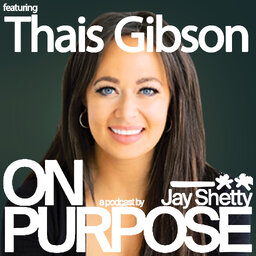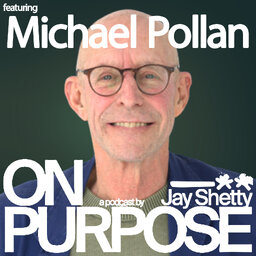6 Ways to Transform A Negative Mindset & How to Overcome Fear and Anxiety
Today, I am excited to share how we can switch our minds for better growth and resilience. We will learn about the 3-step formula monks use to train themselves to be more mindful and present in the moment, the achievable steps to help improve our focus, and how to teach our mind to adapt and learn faster.
You can order my new book 8 RULES OF LOVE at 8rulesoflove.com or at a retail store near you. You can also get the chance to see me live on my first ever world tour. This is a 90 minute interactive show where I will take you on a journey of finding, keeping and even letting go of love. Head to jayshettytour.com and find out if I'll be in a city near you. Thank you so much for all your support - I hope to see you soon.
Key Takeaways:
- 00:00 Intro
- 01:38 How to monk-switch your mind for growth and resilience?
- 05:52 Train yourself to equate change with opportunity
- 09:30 We become better at learning things as we grow older
- 10:03 The 3-step formula to help reshape our brains and improve our focus
- 14:15 "When you choose to see stress response as helpful, you create the biology of courage."
- 16:03 Step #1: Clear and intentional goal
- 17:43 Step #2: Focus
- 19:37 Step #3: Motivation
- 21:28 Step #4: Service
- 23:13 Step #5: Create a supportive environment for your development
- 26:54 Welcome to the Daily Jay!
Like this show? Please leave us a review here - even one sentence helps! Post a screenshot of you listening on Instagram & tag us so we can thank you personally!
Want to be a Jay Shetty Certified Life Coach? Get the Digital Guide and Workbook from Jay Shetty https://jayshettypurpose.com/fb-getting-started-as-a-life-coach-podcast/
In 1 playlist(s)
On Purpose with Jay Shetty
My name is Jay Shetty, and my purpose is to make wisdom go viral. I’m fortunate to have fascinating …Social links
Follow podcast
Recent clips

Stop Trying to “Win” An Argument With Your Partner! (THIS Shift Will Turn Conflict into Communication)
38:35

Relationship Expert Thais Gibson: Do You Keep Attracting The Same Emotionally Unavailable Partner? (Use THIS Attachment Reset To Break The Cycle And Choose Better Partners)
1:44:33

Michael Pollan: The Hidden Cost Of Constant Distraction (Use THIS Practice To Reclaim Your Attention, Clarity, And Inner Freedom)
1:20:39
 On Purpose with Jay Shetty
On Purpose with Jay Shetty